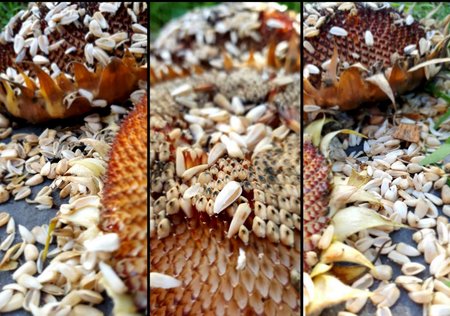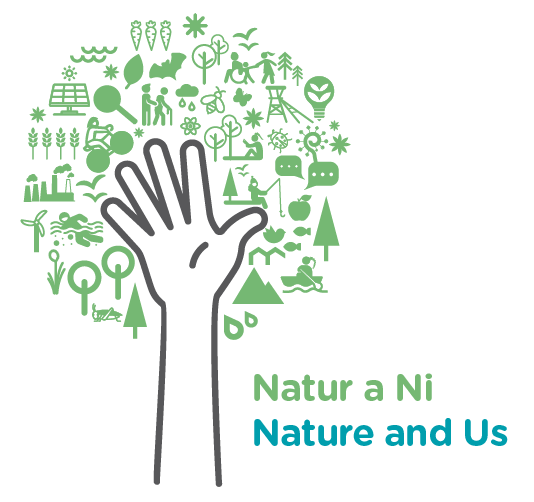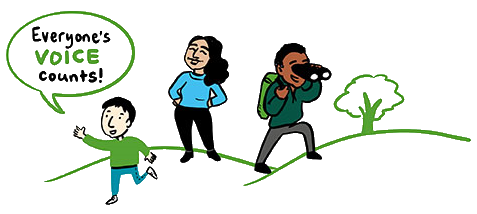Catriona James

Catriona is a multi-disciplinary theatre-maker based in Adamsdown, Cardiff. Her residency was centred at Pengam Permanent Allotments a site reclaimed from industry and at risk of loss to the rising sea. She used the site to explore how land use had evolved over time and what spaces like these could mean for community self-reliance. Catriona spent time on the allotment in conversation with the other tenants. She carried out research into the history of the site and undertook a series of creative reflections and interventions which she documented in a digital journal.
What she learnt
Catriona reported: I feel the issues we face in the future are manifold, complex and dangerous. It’s almost impossible to consider any of them in isolation, but the issues that appear to have a direct link to the allotment community are perhaps food supply chain issues, flooding, weather extremes. I feel this time I’ve spent has sharpened my awareness that there is so much we need to do! We’re going to need a multi-faceted approach to deal with the challenges presented by the changing climate. But my enquiry has been reassuring to some degree, in that it has shown me the strength of community organisations that exist already in this part of Cardiff. We need to do more work to empower communities to identify what they need and take action to realise those needs - and this sort of community organising is part of the wider work we need to counter the capitalist structures that engender further climate change.
I think what it's taught me as well as that the pace of change is quite slow, because actually, we have to draw people to things gently in order to create a lasting change. We could do top down change overnight the way we had to do with the pandemic, but people can only tolerate that for a short period of time and it is a painful process. It may be a necessity at points in the future, but it would be better if we can draw people towards change. What do you feel this enquiry has taught you about the changes we need to make to address those issues? I suppose I got into this a bit already with the previous question. Change needs to be both community led and top-down. I feel that there’s a tension between the role of the individual vs corporate/government forces, which is often a shifting of responsibility. We need a stronger engagement with the idea of collective responsibility. I’ve been thinking about the role of creativity as well. I attended the Food Summit in Cardiff as part of my enquiry, and whenever I introduced myself as an artist, I got the reaction - as I often do in situations - that people don’t feel they are creative in any way.
I find that astounding, because I think that one of the things that makes us human is creativity. And of course, so many of our problems result from a failure of imagination: our inability to imagine something different and then enact it. It feels like some of the work we need to do is to empower people to recognise their own creativity, while also creating an environment where they then feel as though they can act on it. I think also that we need to have honest conversations about growth, and work towards dismantling the idea that growth is always a positive thing. There’s lessons from allotment management there, because gardening requires so much curtailing of growth. Unchecked growth would result in a plot full of nettles, which is only optimal if you are a nettle.
I don't know how much of what drives the community gardeners is about climate change and how much is it that they feel strongly that people shouldn't be dependent on supermarkets and instead should be able to source their food locally. I've had some interesting conversations with one of my allotment neighbours as well, and have heard about his development as a gardener. He's at the point now where he doesn't even dig with tools - he only ever uses his hands because he doesn't want to disturb the soil. At the beginning, he said, he dug everything and cleared things that could have composted away. I feel that although it's not explicit, there's definitely bigger picture thinking happening there. Beyond those examples, I don't know how much it's in people's thoughts, because I did also experience that if I brought up anything climate related some people would back away from the conversation. It just takes time to get to that level of conversation because it is a really big scary topic.
The thing that stood out to me most is the idea of prefiguration, which I was introduced to by my mentor early on in our conversations. Prefigurative politics - to organise myself, to live, in the manner that reflects the way I want the world to be. I’ve kept returning to the idea again and again - looking for it in this enquiry, in my life and in the world around me. It’s something that I am definitely carrying forward with me.
What we can learn from this
There is something fundamental to learn here about the pace of public policy making, and the reductive nature of working at a society scale. Often the change that is trying to be made to society forgets the individuals who are being asked to change along with it. Many of the systems that effect climate change the most, food production among them, are impact greatly by the choose we make as individuals. However, much of the climate debate is centred on system wide solutions, rather than alternative narratives about how we might want to live our lives.
This study suggests taking a slower and more interpersonal approach to place-based engagement, taking the conversation about climate change out of the workshops and focus groups and into the community spaces where possible solutions are being explored on a daily basis.

